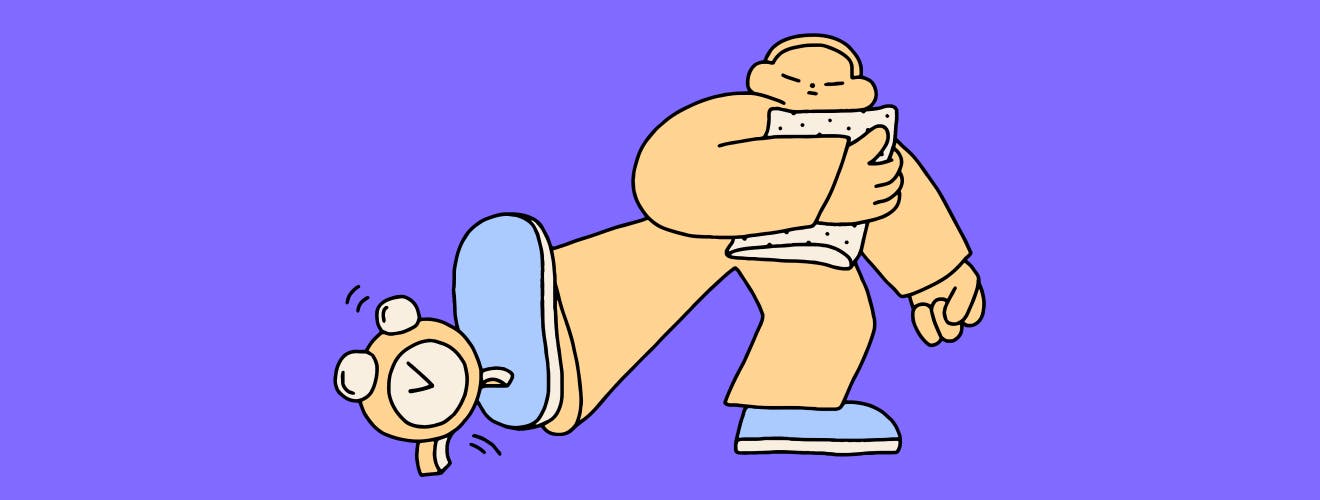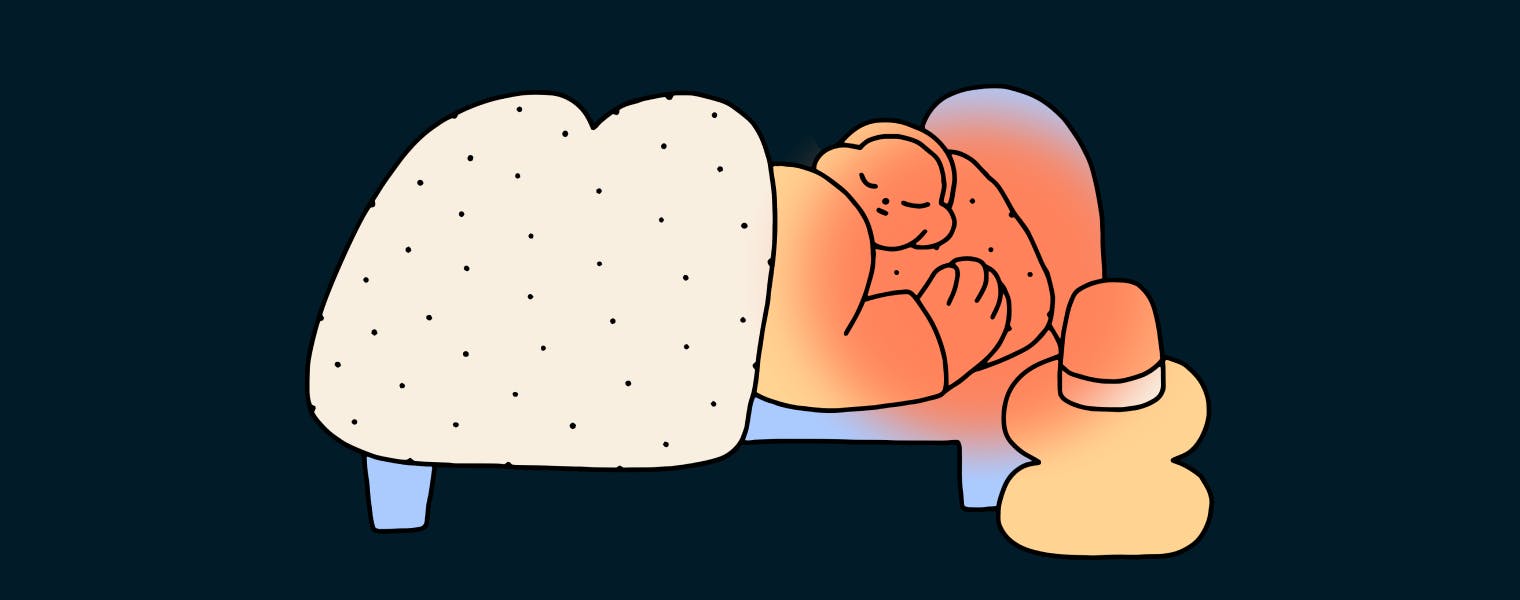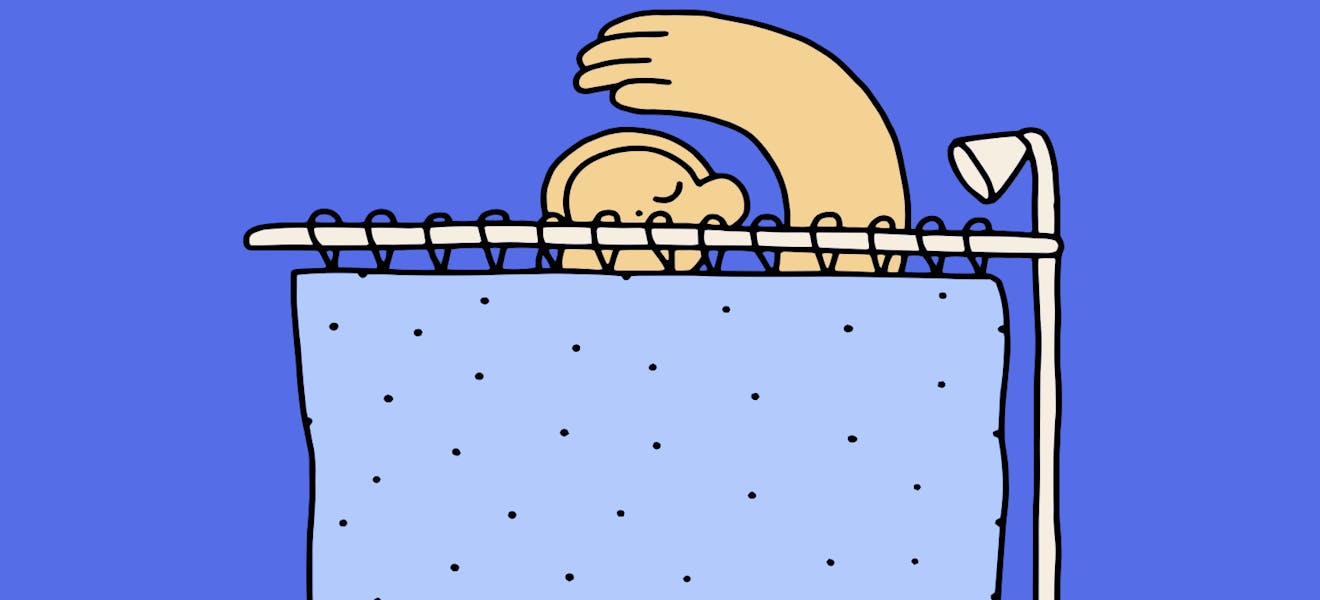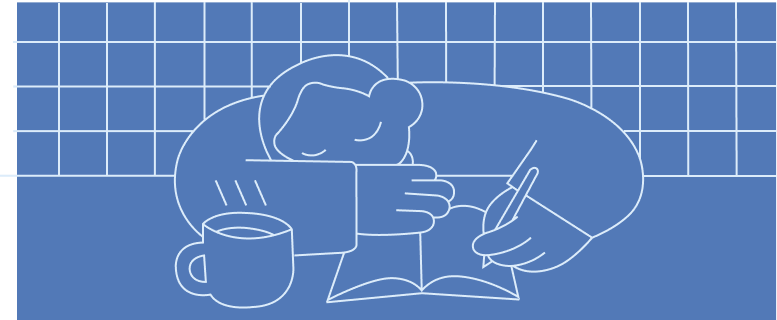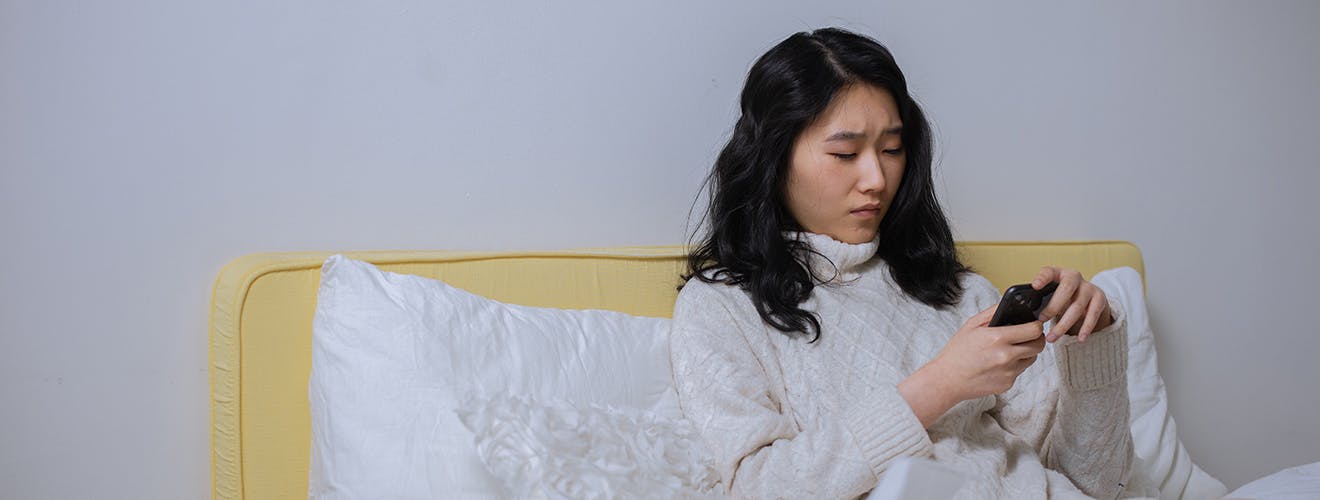What is a Hypnic Headache?
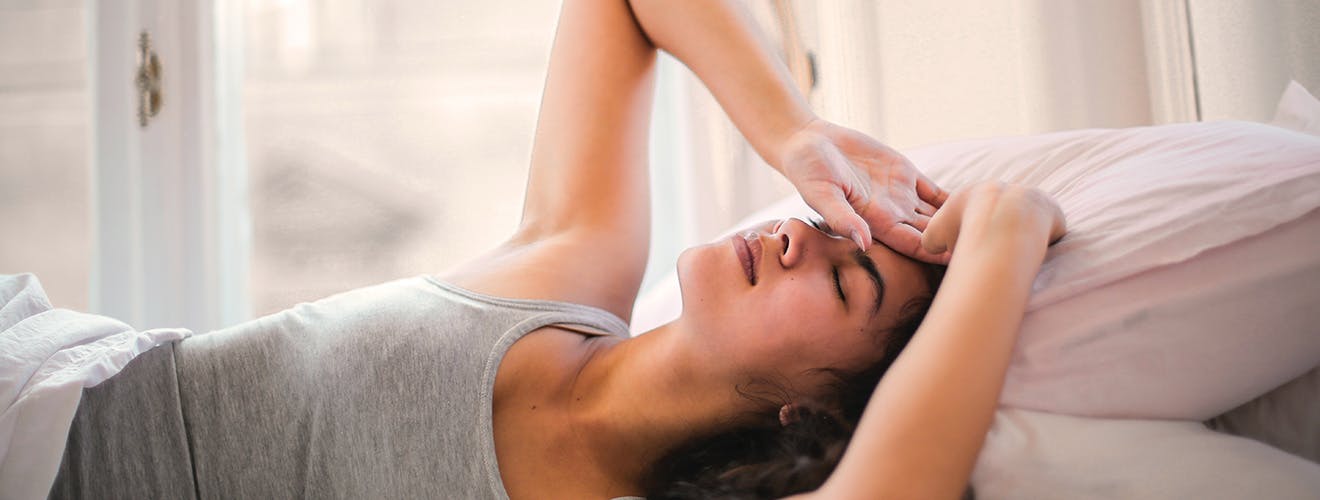
If the idea of an internal alarm sounds appealing, you may want to think it through some more. Hypnic Headache Syndrome is characterized by frequent recurrent headaches that occur only during sleep. They usually wake you up around the same time each night, which is why they're also sometimes called alarm clock headaches. Read on below to learn more about what causes hypnic headaches and how to treat them.
What Is Hypnic Headache Syndrome?
Hypnic headaches are a form of cephalalgia, which refers to any kind of pain in the head. The condition affects less than 1% of the population, so you shouldn't be surprised if you haven't yet heard of it.
According to the International Classification of Headache Disorders (ICHD-3), hypnic headaches follow the following diagnostic criteria:
- They develop only during sleep and wake you up
- They occur for 10 or more days per month, for 3 or more months
- They last from 15 minutes up to 4 hours after awakening
- They are not associated with any cranial autonomic symptoms or restlessness
- They are not accounted for by any other ICHD-3 diagnosis
How is a Hypnic Headache Different From a Normal Headache?
Hypnic headaches or nighttime headaches occur exclusively during sleep, so if you're experiencing headaches outside of sleep there may be something else going on. Typically, they only appear among the elderly population aged 50 and above, although there have been some reported cases of younger people experiencing hypnic headaches as well.
Hypnic headaches are rare and largely different from other primary headache disorders or secondary headache disorders because of their timing.
As a type of disorder that occurs only during sleep, it's important for your doctor to differentiate your symptoms from other ailments like cluster headaches. Other possible causes of headaches during sleep may include sleep apnea, nocturnal hypertension or high blood pressure, medication overuse, and intracranial disorders.
If you're experiencing symptoms, you should book an appointment with your doctor to discuss the likelihood that you are experiencing hypnic headaches or something else altogether.
What are the Symptoms of Hypnic Headaches?
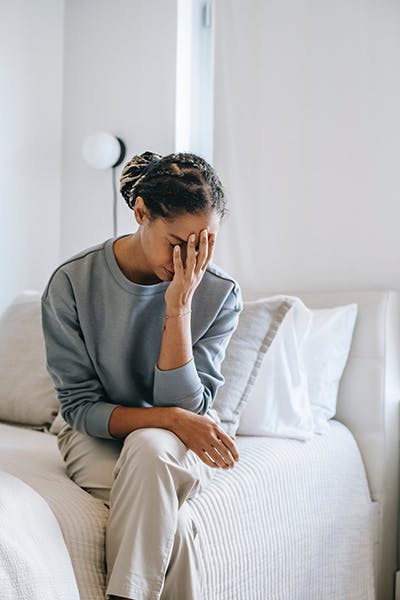
You may have hypnic headaches if you're experiencing dull or throbbing pain affecting either one or both sides of your head, you wake up in the middle of the night, multiple times per month, you have nausea, you are sensitive to light or sounds, and you have runny eyes or nose.
The most important thing to note is that hypnic headaches only occur during sleep, usually at around the same time; typically around 2 to 3 hours after you fall asleep, or between one and three in the morning. The pain usually ranges from moderate to severe, but it's often significant enough to bring you out of your sleep. They can last for as fast as 15 minutes up to 4 hours.
Those who experience this headache disorder often experience upwards of ten episodes a month.
Who is Most Likely to Suffer From Nighttime Headaches?
The most likely sufferers of hypnic headaches are individuals aged 50 and above, although younger populations can be affected as well. There is also some evidence to support that women remain more suitable for this kind of headache disorder.
Unfortunately, because the condition is so difficult to diagnose, patients often suffer for significant chunks of time before they can access a treatment plan. As of today, we are yet to understand the full scope of patients suffering from hypnic headache disorder.
How Do Medical Professionals Treat Hypnic Headaches?
Currently, there are no treatments or medications specifically designed for hypnic headaches, but there are options you can take to alleviate the discomfort.
Caffeine
Patients with hypnic headaches usually are advised by doctors to take caffeine before bed. Coffee at night may sound like the one thing you should avoid if you want to sleep, but if you have hypnic headaches it's surprisingly effective. According to the American Migraine Foundation, caffeine does not prevent patients from getting enough sleep.
Caffeine isn't just an easy and affordable way to treat symptoms of hypnic headaches, it's also a low-risk alternative compared to available options. Patients can either choose to take a strong cup of coffee or take a caffeine pill. 40 to 60 milligrams of caffeine usually introduces the best results.
Indomethacin
Indomethacin is usually used to relieve pain, swelling, and joint stiffness caused by arthritis, gout, bursitis, and tendonitis but it has also shown positive results in managing this type of headache. The usual dose for treatment is 25 to 150 milligrams at bedtime, but you need to be cautious regarding possible side effects such as upset stomach, heartburn, headache, drowsiness, or dizziness. This may also increase your blood pressure, so patients with hypertension aren't advised to take this.
Lithium Carbonate
Lithium carbonate can also be effective against hypnic headaches at certain doses. The medication is often used to treat symptoms of Bipolar Disorder and is prescription-only, so you'll need medical advice prior to taking this. This must be used with caution particularly if you have kidney or thyroid disease, dehydration, or using diuretics.
Other Medications & Natural Sleep Aids
If none of these options appeal to you, you can choose to try OTC migraine meds which generally contain caffeine and pain relievers. This, however, may cause chronic headaches when used for a long time. In that case, it may be safer to try other pain relievers such as aspirin. Natural sleep aids like melatonin are also an option for securing better sleep.
Conclusion
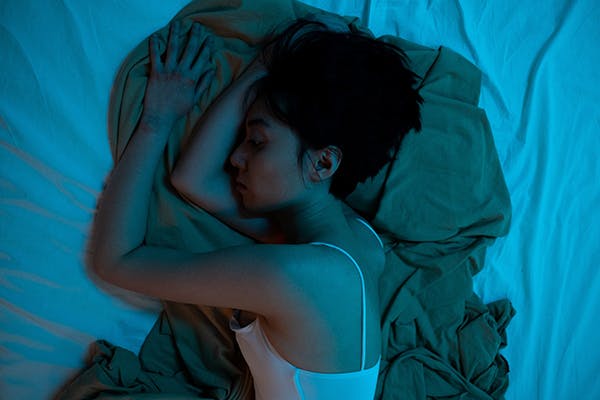
Headaches can be a pain, but lack of sleep is even more painful in the long run. Getting enough sleep is essential for your overall health.
Sandland Sleep offers natural sleep aids that can help you fall asleep fast and stay asleep throughout the night. Aside from their hemp-derived ingredients, each product contains melatonin which can be helpful for migraines as well. If you want to avoid nighttime headaches and enjoy a restful sleep, our vegan, GMO-free, and non-intoxicating sleep supplements can help.
With Sandland Sleep, you can fall asleep faster, stay asleep longer, and wake up with no groggy feeling. Just good clean sleep.
Hypnic headaches typically cause dull or throbbing/pulsating head pain. Nausea, runny nose, and sensitivity to light and sound may also occur. These headaches are notorious for occurring during sleep, around the same time each night.
The first thing doctors recommend as treatment for hypnic headaches is usually caffeine: taking a caffeine pill or a cup of coffee before bed will likely help. If that doesn't work, your doctor may suggest other treatment options such as indomethacin, a non-steroidal anti-inflammatory drug (NSAID) for pain relief, or lithium carbonate which is often used as a mood-stabilizing drug mainly for bipolar disorder and cluster headaches.
Yes. Melatonin is often used to treat several primary headache disorders such as migraine, cluster headache, tension-type headache, hemicrania continua, SUNCT/SUNA, and primary stabbing headache. It may be used to treat hypnic headaches as well.
Hypnic headaches are annoying and inconvenient to live with because they cause you pain and deprive you of sleep. This can also be detrimental to your health in the long run. If you experience symptoms regularly and are losing sleep, you should see a doctor for medical advice to find the cause and the proper treatment plan for you.
